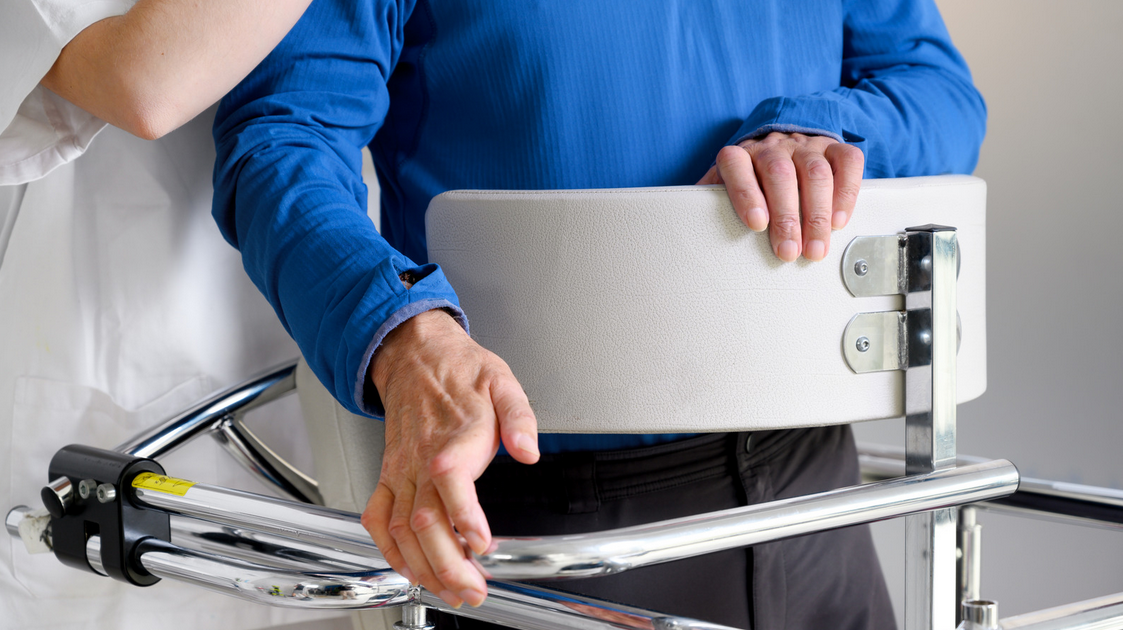Heartfelt Care: Ensuring Comfort and Well-being for Your Older Loved One with Lou Gehrig’s Disease

Caring for a loved one with Lou Gehrig’s Disease, also known as Amyotrophic Lateral Sclerosis (ALS), requires special compassion and dedication. As the disease progresses, it can bring significant physical challenges and emotional strain for the patient and their family. This guide aims to provide valuable insights, practical strategies, and heartfelt support. By understanding the unique needs of individuals with ALS and implementing compassionate care techniques, you can make a meaningful difference in their comfort, well-being, and quality of life. Together, let’s embark on this journey of care and love.
Lou Gehrig’s Disease: a Type of Motor Neuron Disease
Lou Gehrig’s Disease, also known as amyotrophic lateral sclerosis (ALS), is a progressive neurodegenerative disease affecting brain and spinal cord nerve cells. Named after the legendary baseball player Lou Gehrig, who brought awareness to the disease in the 1930s, ALS gradually weakens the muscles, leading to a loss of voluntary muscle control. This condition impairs essential functions like walking, speaking, swallowing, and breathing. An important aspect is that ALS manifests itself uniquely in each individual. Nevertheless, certain shared traits can be expected to arise in each phase of the condition.
1. Initial Stage of ALS

During the initial stage of ALS, individuals may experience mild muscle weakness or twitching, which often goes unnoticed or is attributed to normal aging or fatigue. They may find it difficult to perform delicate tasks that require fine motor skills, such as buttoning shirts or tying shoelaces. It is crucial to be mindful of potential challenges in this stage, including:
- Communication: As muscles in the throat and mouth weaken, speech may become slurred or difficult to understand. Exploring alternative communication methods, such as augmentative and alternative communication (AAC) devices or speech-generating applications, can help maintain effective communication.
- Mobility: Balance and coordination may be affected, leading to a higher risk of falls in seniors. Ensuring a safe environment with proper assistive devices and grab bars and removing trip hazards can help reduce the risk of injuries.
2. Middle Stage of ALS
Muscle weakness progresses in the middle stage of ALS, making daily activities increasingly difficult. Assistance with mobility aids and personal care may become necessary. Here are some potential challenges to be mindful of:
- Breathing and Respiratory Function: Weakening of the muscles involved in breathing can result in shortness of breath and decreased lung capacity. Consultation with healthcare professionals and respiratory support devices, such as non-invasive ventilation or cough assist machines, may be required to manage breathing difficulties effectively.
- Swallowing and Nutrition: As swallowing muscles weaken, individuals may experience difficulty swallowing food and liquids, increasing the risk of choking and malnutrition. Modified diets, thickening agents, or feeding tubes might be necessary to ensure adequate nutrition and hydration.
3. Final Stage of ALS
In the final stage of ALS, individuals experience significant muscle weakness and often require comprehensive assistance with all aspects of daily living. Challenges in this stage include:
- Immobility: Full paralysis may occur, necessitating the use of mobility devices like wheelchairs or specialized beds for positioning and pressure relief. Regular repositioning is vital to prevent pressure sores.
- Inability to Talk: Severe muscle weakness in the throat and mouth can result in the loss of the ability to speak. Communication becomes extremely challenging, requiring alternative methods to express needs and desires effectively.
- Difficulty Breathing: Weakening of the respiratory muscles can lead to significant breathing difficulties in the final stage of ALS. Individuals may experience shortness of breath and decreased lung capacity, necessitating additional support to manage their breathing.
- Potential Heart Complications: ALS can occasionally affect the muscles of the heart, potentially leading to complications such as arrhythmias or cardiac dysfunction. Close monitoring of cardiac health is necessary to address any heart-related concerns and optimize overall care.
Differences Between MS and ALS

Multiple Sclerosis (MS) and Amyotrophic Lateral Sclerosis (ALS) are neurological diseases that can impact an individual’s quality of life. While they may share some similarities, it is important to understand the key differences between MS and ALS to provide appropriate care and support for those affected by these conditions.
Disease Type and Progression:
- MS: Multiple Sclerosis is an autoimmune disease where the immune system mistakenly attacks the protective covering of nerve fibers in the central nervous system. This results in the disruption of nerve signals and can lead to a wide range of symptoms, including fatigue, muscle weakness, numbness, problems with coordination and balance, and cognitive impairments. MS is characterized by relapses and remissions, with symptoms varying in severity and duration.
- ALS: Amyotrophic Lateral Sclerosis is a progressive neurodegenerative disease that primarily affects the nerve cells responsible for controlling muscle movement. ALS leads to the gradual degeneration and death of motor neurons, resulting in muscle weakness, atrophy, and eventual paralysis. Unlike MS, ALS typically progresses steadily without remission or relapse.
Muscle Control and Motor Symptoms:
- MS: In MS, the disruption of nerve signals affects various parts of the body, leading to a wide range of motor symptoms. These can include muscle weakness, tremors, difficulty walking, muscle stiffness, and problems with coordination and balance. However, MS primarily affects voluntary muscle control, allowing individuals to retain some degree of control over their movements.
- ALS: ALS predominantly affects motor neurons that control voluntary muscle movement. As a result, individuals with ALS experience progressive muscle weakness, loss of muscle control, and eventual paralysis. This can impact various aspects of daily life, including walking, grasping objects, speaking, swallowing, and even breathing.
Prognosis and Treatment Options:
- MS: While there is currently no cure for MS, there are various disease-modifying therapies available that can help manage symptoms, reduce relapses, and slow down the progression of the disease. Treatment plans for MS are often personalized based on the individual’s specific symptoms and needs. With proper management, individuals with MS can lead fulfilling lives and maintain functional independence for many years.
- ALS: Unfortunately, ALS currently has no known cure, and treatment options mainly focus on managing symptoms, improving quality of life, and providing supportive care. Medications, therapies, and assistive devices can help alleviate symptoms such as muscle cramps, stiffness, and breathing difficulties. Multidisciplinary care, including physical therapy, occupational therapy, respiratory therapy, and palliative care, plays a crucial role in addressing the unique needs of individuals with ALS.
Offering the Best Support for an Elderly with Lou Gehrig’s Disease

When caring for an elderly loved one with Lou Gehrig’s Disease (ALS), providing support that addresses their specific needs and promotes their well-being is essential. Here are some key ways to offer the best support for individuals living with ALS:
1. Recognize Cognitive Abilities
ALS primarily affects a person’s motor functions, not their cognitive abilities. Individuals with ALS typically remain mentally sharp throughout the progression of the disease. Acknowledge their mental capabilities and engage them in conversations and decision-making processes.
2. Inquire Before Assisting
Respect your loved one’s autonomy and independence by asking before providing assistance. Seniors may have their own ways of performing tasks or adapting to changes brought on by the disease. Inquiring shows that you value their input and helps maintain their sense of control.
3. Research and Implement Tech Tools
Explore and utilize technological tools that can enhance self-reliance and improve the quality of life for your loved one. Various assistive devices are available, such as speech-generating devices and eye-tracking software, that can aid in communication and daily tasks.
4. Adapt the Environment
Make modifications to the living environment to accommodate your loved one’s changing needs. Ensure accessibility by removing physical barriers, installing handrails, and adjusting furniture placement to facilitate mobility. Creating a safe and comfortable environment can significantly improve their daily life.
5. Provide Emotional Support
Emotional well-being is crucial for individuals with Lou Gehrig’s Disease. Be a source of emotional support by offering understanding, patience, and empathy. Encourage them to express their feelings and provide reassurance during challenging times. Consider involving a mental health professional or joining support groups to address emotional needs effectively.
6. Seek Professional Assistance
ALS care can be complex, and it may be beneficial to seek professional assistance from healthcare providers, including ALS specialists, physical therapists, occupational therapists, and speech therapists. Their expertise can help develop personalized care plans and provide guidance on symptom management. In addition, hiring a professional caregiver when you are unable to perform these tasks can help ensure the well-being of your loved one.
Learning How Home Care Helps ALS Patients

We all want the best for our loved ones. However, there are times when the challenges of caring for an individual with ALS can feel overwhelming. In such situations, home care becomes a valuable resource that offers specialized assistance and support tailored to the unique needs of ALS patients. Let’s explore how home care can make a significant difference in the lives of individuals living with ALS:
- Assistance with Activities of Daily Living: ALS progressively impacts a person’s ability to perform activities of daily living independently. Home care professionals are trained to provide support with tasks such as bathing, dressing, grooming, and meal preparation. Their assistance helps maintain personal hygiene, promotes nutrition, and alleviates the physical strain on individual with ALS and their caregivers.
- Emotional and Social Support: Living with ALS can be emotionally challenging for both patients and their loved ones. Home care providers offer not only physical assistance but also emotional support. Caregivers provide companionship, actively listen to concerns, and offer encouragement and empathy. Additionally, they can help facilitate social connections and arrange visits with friends, family, or support groups, fostering a sense of community and emotional well-being.
- Respite Care for Caregivers: ALS caregiving can be physically and emotionally demanding. Home care agencies offer respite care services, providing temporary relief for family caregivers. Respite care allows caregivers to take a break, attend to their needs, and recharge, knowing their loved one is in capable hands.
The Takeaway
Educating yourself about ALS, its stages, and the challenges your loved one may face is crucial. By understanding the progression of the disease, you can better anticipate their needs and provide appropriate support at each stage. Remember to be mindful of potential challenges such as speech and swallowing difficulties, emotional impact, breathing complications, and total paralysis.
Seeking assistance from healthcare professionals, joining support groups, and collaborating with home care providers can offer valuable resources and guidance throughout your caregiving journey. These professionals can provide expert advice, share coping strategies, and offer practical solutions to enhance your loved one’s comfort and well-being.
Serenity Senior Care understands the unique needs of individuals with ALS. Our team of compassionate caregivers is dedicated to providing personalized care that preserves dignity and promotes a peaceful and fulfilling life for your loved one. We can ensure their comfort and create a nurturing environment filled with heartfelt care.


